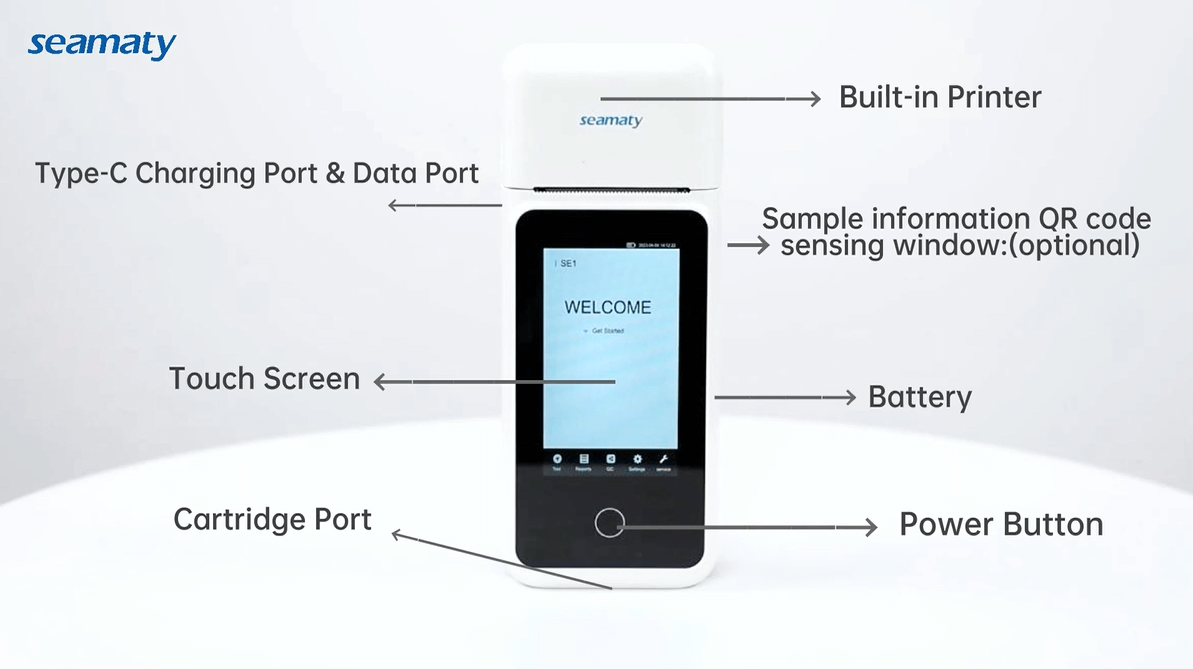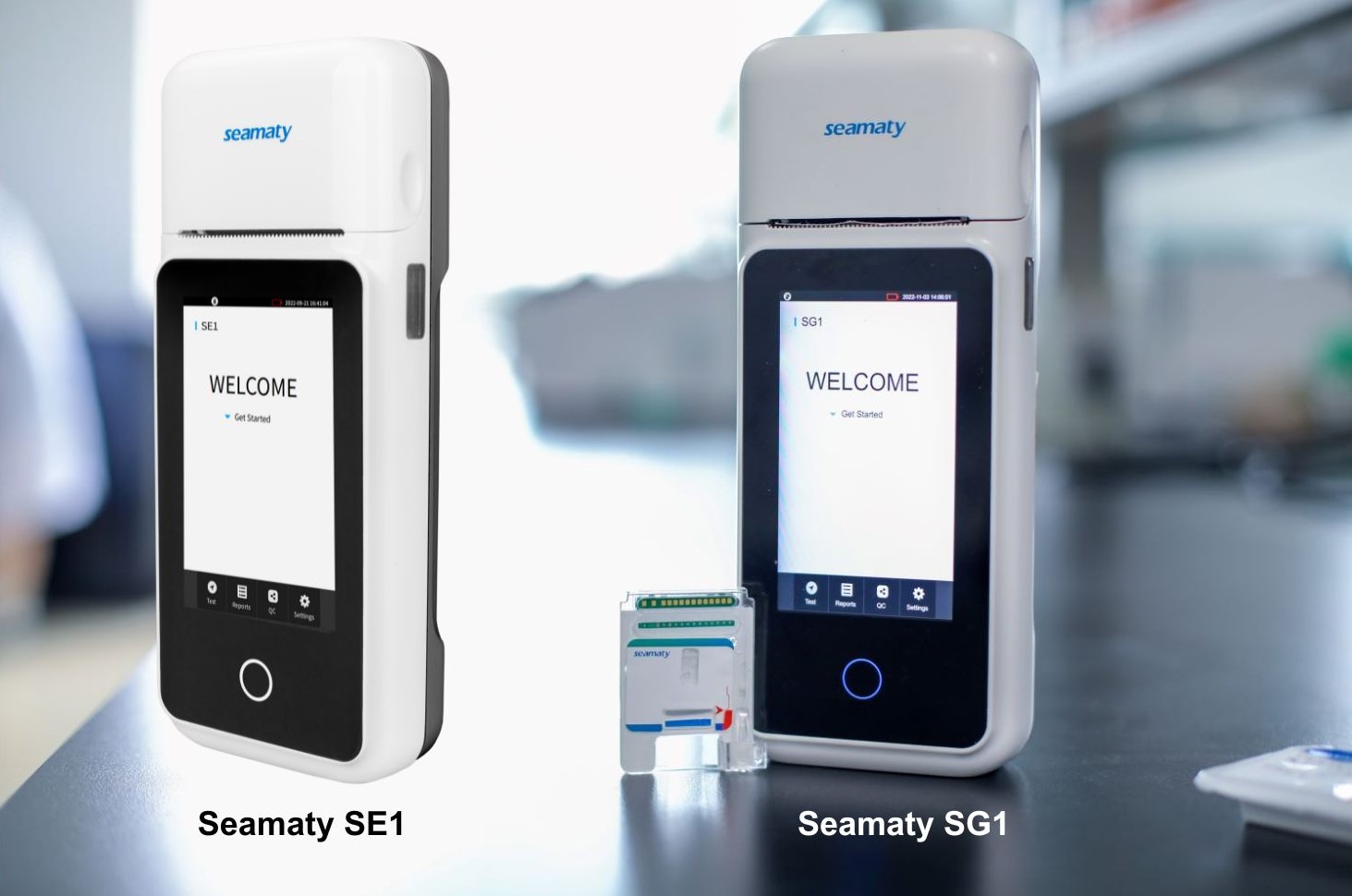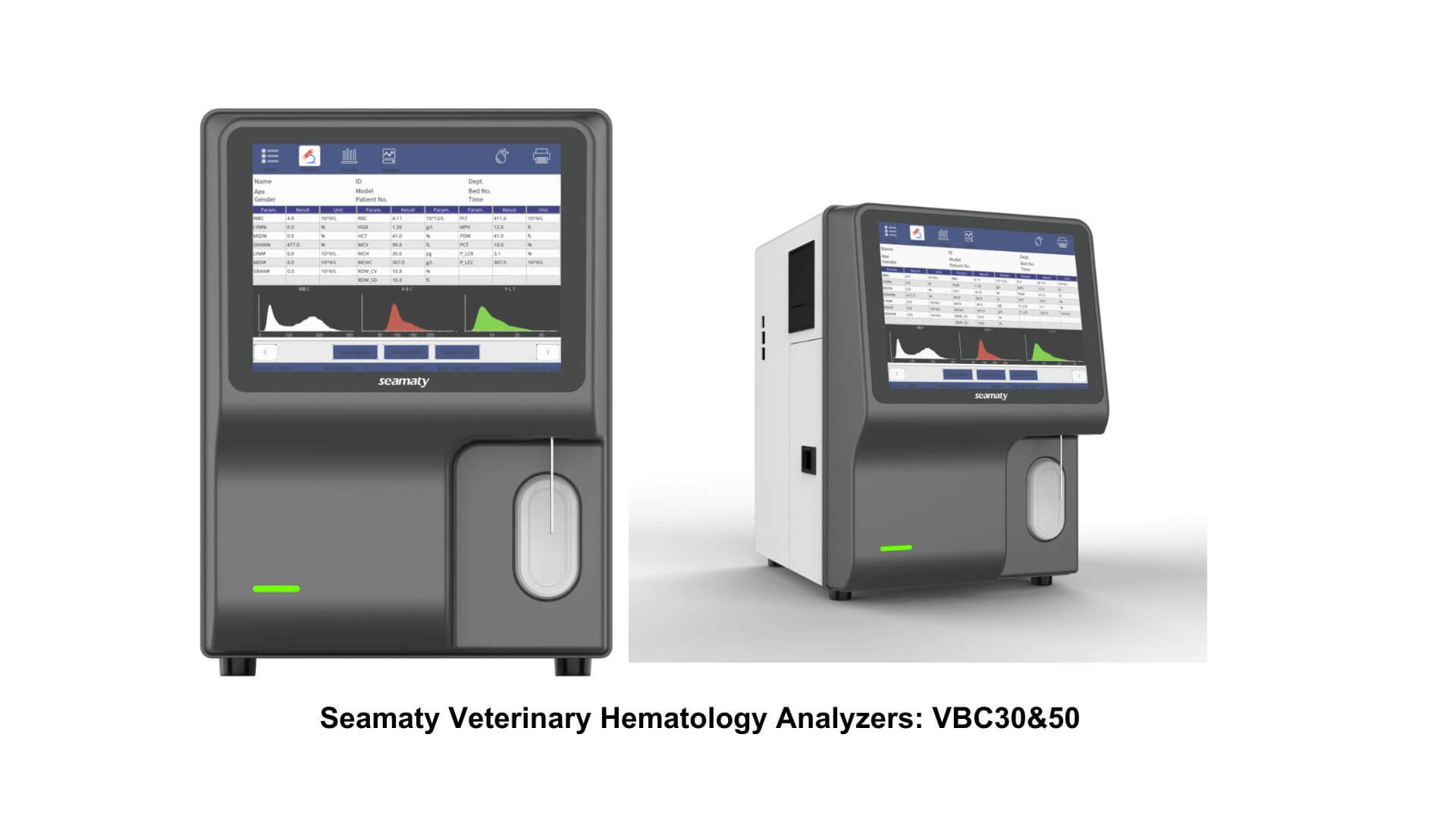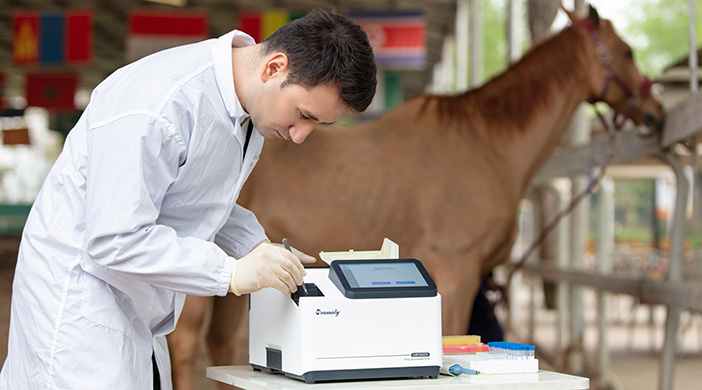release time:2023-07-06 15:22:14
Point-of-care testing plays a vital role in delivering timely and efficient healthcare. In this era of fast-paced medical diagnostics, Seamaty's SE1 portable point-of-care electrolyte analyzer and SG1 handheld portable blood gas analyzer have emerged as transformative devices, revolutionizing the landscape of point-of-care testing. These analyzers offer the power of portability, enabling healthcare professionals to conduct rapid electrolyte and blood gas tests at the patient's side, with lab-quality results and minimal sample volume. Let's delve into the world of portable point-of-care electrolyte analyzers and explore the remarkable features of Seamaty's SE1 and SG1 analyzers.
Portable point-of-care electrolyte analyzers are compact diagnostic instruments designed to perform electrolyte analysis at the patient's bedside or in various healthcare settings. These analyzers bring the laboratory to the point of care, eliminating the need for sample transportation and reducing turnaround times. They offer several advantages, including convenience, real-time results, and enhanced patient care through timely diagnostics. Portable analyzers have become indispensable tools in critical care settings, emergency departments, ambulatory care, and more.
At the forefront of portable analyzers, the Seamaty SG1 handheld portable blood gas analyzer combines microfluidic and microbiosensing technologies, allowing for comprehensive blood gas and electrolyte testing in a compact device. Its lab-quality results are ensured through dual monitoring and triple calibration for each test, offering accurate and reliable data. The SG1's user-friendly design enables a simple three-step testing process: adding the sample, inserting the cartridge, and reading the results. With a built-in printer, healthcare professionals can obtain real-time printouts of test results, facilitating immediate treatment decisions.
The SG1's portability is a game-changer in point-of-care testing, weighing only 600g and easily carried to the patient's side. It boasts a long battery life, thanks to its large-capacity lithium battery, supporting up to 60 completed cartridge tests. Rapid results are another hallmark of the SG1, delivering comprehensive blood gas and electrolyte data in just four minutes. Furthermore, the analyzer requires a small sample volume of only 100μL of whole blood, minimizing discomfort for patients while providing accurate measurements.
Seamaty SE1 portable point-of-care electrolyte analyzer is purpose-built to enhance patient care across various healthcare settings. Its compact size and user-friendly interface make it ideal for use at the hospital bedside, physician's office lab, urgent care clinics, and even retail clinics. With the SE1, healthcare professionals can conduct electrolyte analysis wherever and whenever needed, eliminating the need for sample transportation and reducing turnaround times.
The SE1's portability and convenience enable healthcare professionals to obtain immediate results, facilitating prompt interventions and enhancing patient outcomes. Its intuitive interface guides users through the testing process, providing accurate electrolyte measurements with ease. By bringing electrolyte analysis to the point of care, the SE1 empowers healthcare professionals with real-time insights, leading to faster treatment decisions and improved patient care.

The impact of Seamaty's SE1 and SG1 analyzers on point-of-care testing cannot be overstated. These portable devices revolutionize healthcare delivery in several ways:
1. Improved patient care and treatment decisions: Portable analyzers enable immediate access to critical diagnostic information, allowing healthcare professionals to make informed treatment decisions promptly. By eliminating delays in obtaining test results, these analyzers contribute to enhanced patient care and improved outcomes.
2. Streamlined workflow and reduced time-to-results: Portable point-of-care analyzers simplify the testing process and eliminate the need for sample transportation to the central laboratory. This streamlined workflow saves valuable time, allowing healthcare professionals to obtain test results rapidly and initiate appropriate interventions without delay.
3. Enhanced efficiency and convenience for healthcare professionals: The portability and user-friendly design of Seamaty's analyzers make them easy to use in various healthcare settings. Healthcare professionals can perform tests quickly and efficiently, reducing the burden of time-consuming laboratory procedures and increasing their productivity.
4. Cost-effectiveness and resource optimization in healthcare settings: Portable analyzers reduce the need for multiple equipment setups and laboratory infrastructure, making them a cost-effective solution for point-of-care testing. Additionally, these analyzers minimize sample volume requirements, reducing waste and optimizing resource utilization.
Seamaty's SE1 and SG1 analyzers exemplify the power of portability in transforming point-of-care testing. By bringing the laboratory to the patient's side, these devices revolutionize healthcare delivery, enabling rapid, accurate, and convenient electrolyte and blood gas analysis. With their compact size, lab-quality results, and user-friendly interfaces, Seamaty's analyzers empower healthcare professionals to make timely decisions and provide optimal care. The future of point-of-care testing lies in the portability and convenience offered by devices like the SE1 and SG1, revolutionizing healthcare and improving patient outcomes.


2023-07-19
Discover the top 5 reasons why Seamaty Veterinary Hematology Analyzers are essential for your clinic. Enhanced diagnostics, cost-effectiveness, user-friendly design, space-saving solution, and broad applicability await!

2022-02-22
Some enzymes with relative molecular mass much larger than normal enzyme molecules can sometimes be found in the serum, which are usually called giant enzymes or macroenzymes for short.

2021-08-20
As we all know, these large immunoassay analyzers are complicated to operate and require specialized physician training to operate them. But the machine is inevitably malfunctioning. So if the equipment breaks down in, what can be done?